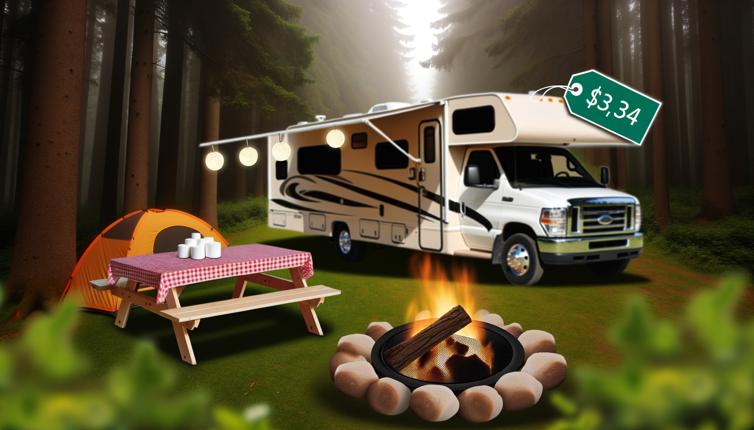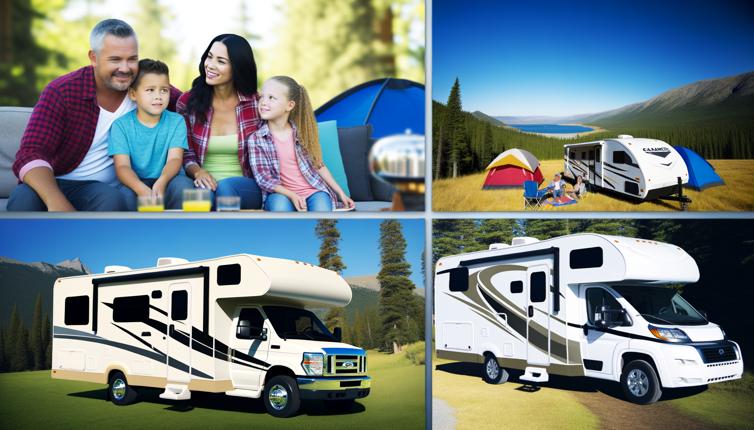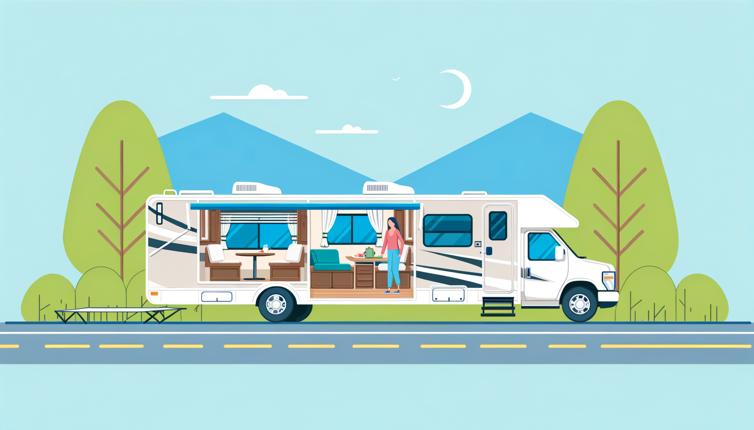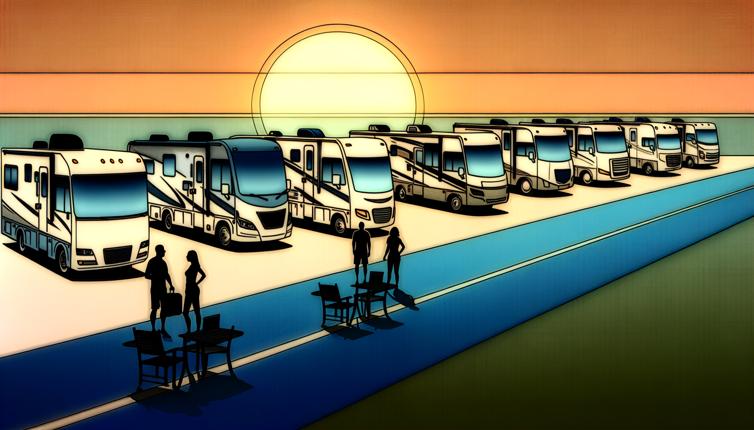Assessing Your Camping Needs
The first step in finding the perfect RV is to assess your camping needs. Consider how many people will be joining you on your camping trips. Will you be traveling solo, as a couple, or with a family? This will help you determine the size and sleeping capacity of the RV you'll need.,Think about the type of camping you enjoy. Do you prefer boondocking in remote locations or staying at full-service campgrounds with amenities? This will influence the type of RV you should choose.,Make a list of the essential features you're looking for in an RV. This could include things like a kitchen, bathroom, heating and cooling system, storage space, and entertainment options. Prioritize these features based on their importance to you.,Consider your travel plans. Will you be taking short weekend trips or embarking on long cross-country adventures? This will help determine the level of comfort and convenience you'll require from your RV.
Determining Your Budget
Next, you'll need to determine your budget for purchasing an RV. It's important to be realistic about what you can afford. Keep in mind that there are additional costs associated with owning an RV, such as insurance, maintenance, and campground fees.,Consider whether you're willing to buy a new or used RV. New RVs tend to be more expensive but come with warranties and the latest features. Used RVs can be more affordable but may require more maintenance and repairs.,If you're on a tight budget, consider financing options or looking for RVs on sale. Many dealerships offer financing plans with affordable monthly payments. You can also check online marketplaces and classified ads for used RVs at a lower price.,Remember to factor in the cost of any necessary accessories or upgrades you'll need for your camping adventures. These could include items like camping gear, solar panels, towing equipment, or bike racks.
Researching RV Types and Brands
With your camping needs and budget in mind, it's time to start researching different types and brands of RVs. There are several options to choose from, including Class A, Class B, Class C, travel trailers, and fifth wheels.,Class A motorhomes are the largest and most luxurious, but also the most expensive. Class B motorhomes, also known as camper vans, are smaller and more affordable. Class C motorhomes are a middle ground between Class A and Class B.,Travel trailers and fifth wheels are towable RVs that can be attached to a truck or SUV. They are often more affordable than motorhomes and offer more flexibility in terms of the vehicle used for towing.,Research different RV brands and read reviews from current owners. Pay attention to factors like reliability, customer satisfaction, and resale value. Consider visiting RV dealerships or attending RV shows to see the different models in person.
Comparing Prices and Features
Once you have a list of RV types and brands that you're interested in, start comparing prices and features. Use online resources and RV dealership websites to gather information on pricing, standard features, and optional upgrades.,Keep in mind that prices can vary greatly depending on the size, age, and amenities of the RV. Look for models that offer the essential features you identified earlier and compare prices within your budget range.,Consider the long-term costs associated with each RV option. Some RVs may have better fuel efficiency, lower maintenance costs, or better resale value, which can save you money in the long run.,Don't forget to factor in the cost of insurance. RV insurance rates can vary, so gather quotes from different insurance providers to get an idea of what to expect.
Taking RVs for Test Drives
Before making a final decision, it's important to take the RVs you're considering for test drives. This will give you a feel for their handling, comfort, and overall usability.,During the test drive, pay attention to factors like engine performance, braking, visibility, and maneuverability. Test out all the features and systems in the RV, including the kitchen appliances, bathroom facilities, and entertainment systems.,If possible, try staying overnight in the RV to get a sense of its livability. Check for noise levels, comfort of the sleeping areas, and ease of setting up camp.,Consider bringing a checklist of your essential features and comparing how each RV fulfills those requirements. This will help you make an informed decision based on your camping needs and budget.
Conclusion
Finding the perfect RV for your budget is all about striking a balance between your camping needs and what you can afford. It may require some compromise, but with thorough research and careful consideration, you can find an RV that meets your requirements without breaking the bank. Remember to assess your camping needs, determine your budget, research RV types and brands, compare prices and features, and take RVs for test drives. With these steps, you'll be well on your way to finding the perfect RV for your camping adventures.









